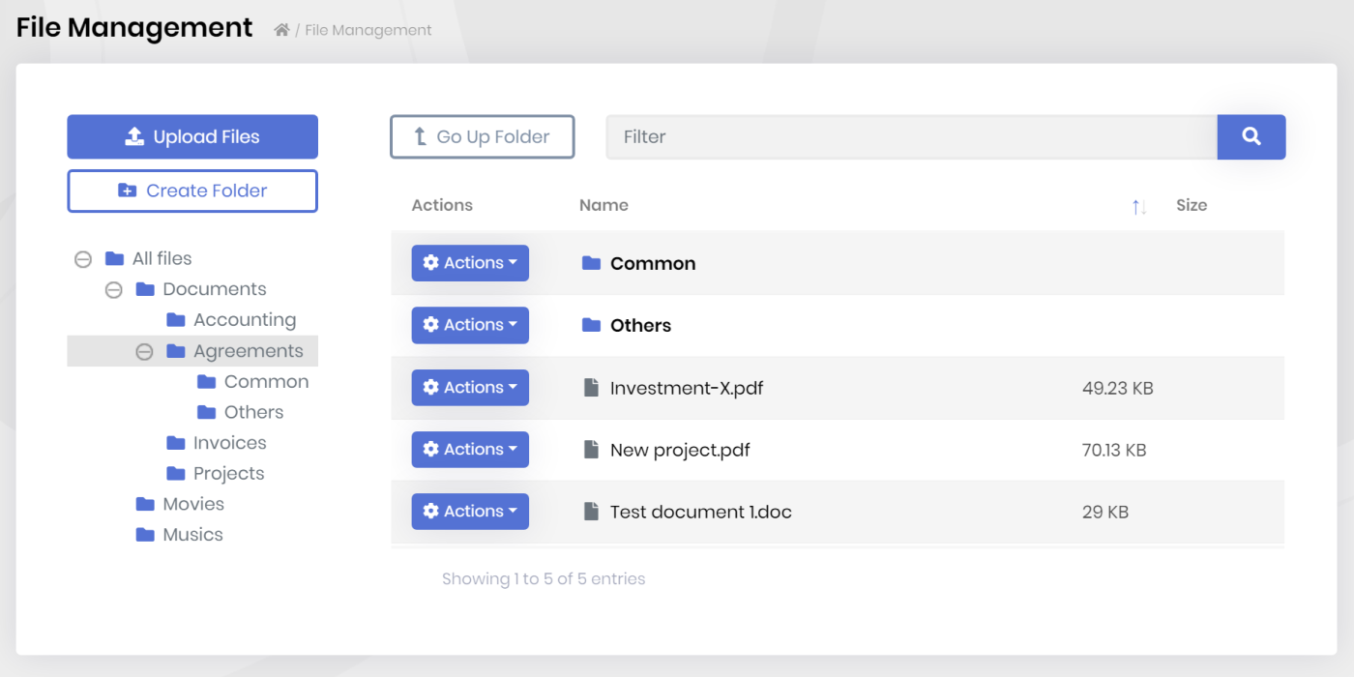ABP Framework v3.0 Has Been Released
We are excited to announce that the ABP Framework & and the ABP Commercial version 3.0 have been released. As different than the regular release lifecycle, which is 2-weeks, this version has taken 4-weeks with 119 issues closed, 89 pull requests merged and 798 commits done in the main framework repository.
Since this is a major version, it also includes some breaking changes. Don't panic, the changes are easy to adapt and will be explained below.
See the GitHub release notes for a detailed change log.
What's New with the ABP Framework 3.0?
This post will only cover the important features/changes. You can see all the changes on the GitHub release notes.
Angular 10!
Angular version 10 has just been released and we've immediately migrated the startup templates to Angular 10! So, when you create a new solution with the Angular UI, you will take the advantage of the new Angular.
We've prepared a migration guide for the projects created an older version and want to migrate to Angular 10.
The Oracle Integration Package
We had created an integration package for the Oracle for EF Core based applications using the Devart's library since the official Oracle EF Core package was not supporting the EF Core 3.1. It now supports as a beta release. While it is in beta, we've created the integration package, so you can use it in your application.
See the documentation for details.
Azure BLOB Storage Provider
We had created a BLOB storing system in the previous version with a file system and database storage provider. This release introduces the Azure BLOB Storage provider. See the documentation.
Distributed Cache Bulk Operations & the New Redis Cache Package
The standard IDistributeCache interface of the ASP.NET Core doesn't contain bulk operations, like setting multiple items with a single method/server call. ABP Framework introduces new methods those can be used for bulk operations on the ABP's IDistributedCache<T> interface:
- GetManyAsync / GetMany
- SetManyAsync / SetMany
Then we needed to implement these new methods for Redis cache and had to create a Redis integration package which extends the Microsoft's implementation.
These methods are also used by the ABP Framework to cache settings, features and permissions for a user/role/tenant and brings a significant performance improvement.
See the caching document for details.
Embedded Files Manifest Support for the Virtual File System
Virtual File System now supports to use GenerateEmbeddedFilesManifest in your projects to add the real file/directory structure of your embedded resources in the compiled assembly. So, you can now access to the files without any file name restriction (previously, some special chars like . in the directory names was a problem in some cases)
See the documentation to learn how to take the advantage of new system.
New Samples
Based on the requests from the community, we've prepared two new sample applications:
- StoredProcedureDemo demonstrates how to call stored procedures, views and functions inside a custom repository.
- OrganizationUnitSample shows how to use the organization unit system of the Identity module for your entities.
DynamicStringLength & DynamicMaxLength Attributes
The standard StringLength and MaxLength data annotation attributes is useful to validate properties of a class when the class is used as a Model or DTO. However, just like any other attribute, the length values should be literal (constant) values known at compile time.
Example: Using the StringLength
public class CreateBookDto
{
public const int MaxNameLength = 128; //CONSTANT!
[StringLength(MaxNameLength)]
public string Name { get; set; }
}
ABP Framework now has the DynamicStringLength & DynamicMaxLength properties to allow to determine the lengths at runtime.
Example: Using the DynamicStringLength
public class CreateBookDto
{
public static int MaxNameLength { get; set; } = 128;
[DynamicStringLength(typeof(CreateBookDto), nameof(MaxNameLength))]
public string Name { get; set; }
}
DynamicStringLength gets a class type and the name of a static property on this class to read the max length (there is also a minimum length option just like the StringLength).
This allows you to get the max value from a configuration and set on the application startup (generally, in the PreConfigureServices method of your module):
CreateBookDto.MaxNameLength = 200;
This feature is used by the pre-built application modules, so you can now override the max lengths of the properties defined in these modules.
Auto Distributed Events
ABP can automatically publish distributed events for all entities on their create, update and delete events. That's pretty useful since you commonly interest in these basic events in a distributed system.
This feature is mature and documented with the v3.0. You can easily configure some or all the entities to be published.
IAsyncQueryableExecuter
When you work with LINQ extension methods, you need to call ToListAsync(), FirstOrDefaultAsync()... methods on your queries. Unfortunately, these methods are not standard LINQ extension methods. They are defined in the Microsoft.EntityFrameworkCore package (or in the MongoDB.Driver package if you are using the MongoDB).
So, you need to depend on this package if you want to use the async extension methods. That breaks the layering and makes your application or domain layer depends on the EF Core / MongoDB package.
IAsyncQueryableExecuter is a service defined by the ABP Framework to execute queries asynchronously without depending the specific provider (EF Core / MongoDB) package.
See the documentation to read the details and learn our recommendations.
API documentation
We are now publishing API documents for the ABP Framework and modules in every release. So, you can explore the ABP Framework classes much more easier than before. Click the the API Documentation link on the navigation menu of the documentation.
Package List
We have created a page to list all the ABP-related official NuGet and NPM packages.
Others
- Implemented front-channel server-side clients sign out for the identity server.
abp.currentUser(CurrentUserservice in the Angular UI) now has arolesarray that contains role names of the current user.- Upgraded all the NuGet and NPM package dependencies.
- Introduced
ReadOnlyAppServicebase class (which has only the get operations) in addition to theCrudAppServicebase class (which has get, create, update and delete operations).
See the GitHub release notes for others updates.
What's New with the ABP Commercial 3.0?
In addition to all the features coming with the ABP Framework, the ABP Commercial has additional features with this release, as always. This section covers the ABP Commercial highlights in the version 3.0.
New File Management Module
We've created a new module that is used to store and manage files in your application. This new module is based on the BLOB Storing system, so it can use different storage providers to store the file contents.
Example screenshot

You can upload, download and organize files in a hierarchical folder structure. It is also compatible to multi-tenancy and you can determine total size limit for your tenants. In the next versions, we will be working on a "share" system to share files between users in a more controlled way or share your files with your customers with a public link.
File Management module is currently available only for the MVC / Razor Pages UI. We are working on the Angular UI and it will be released in the next versions.
Breaking Changes
Since this is a major version, we've redesigned some APIs and introduced a few "easy to fix" breaking changes.
ABP Framework
- Changed some consts in the pre-built application modules to static properties that is possible to change by your code. If you've used these consts on an attribute, then use the
DynamicStringLengthas explained above. - Changed
ConcurrencyStampmax length to 40. You need to add a database migration and update your database after upgrading the ABP Framework. - Using
~instead of^for NPM package dependencies anymore, to be more stable.
ABP Commercial
- Changed file names for the application logos. Previously, it was using separate logo files for each theme, like
theme1.png,theme1-reverse.png,theme2.png,theme2-reverse.png(...6). Now, we have only two logo files:logo-light.pngandlogo-dark.png. So, rename your logo in thewwwroot/images/logo/folder for the MVC UI and/src/assets/images/logo/folder for the Angular UI. - We've added the API documentation for the ABP Commercial too.
Also, see the migration guide for Angular UI.
Known Issues
- 3.0.0 version has a problem with tiered architecture. See this issue to fix it for your application until we release the v3.0.1.
About the Next Versions
We will continue to release a new minor/feature version in every two weeks. So, the next expected release date is 2020-07-16 for the version 3.1.
In the next few versions, we will be focused on the Blazor UI, as promised on the road map. We will continue to improve the documentation, create samples, add other new features and enhancements. Follow the ABP Framework Twitter account for the latest news...
Bonus: Articles!
Beside developing our products, our team are constantly writing articles/tutorials on various topics. You may want to check the latest articles:
- What is New in Angular 10?
- Real-Time Messaging In A Distributed Architecture Using ABP, SignalR & RabbitMQ
- How to Use Attribute Directives to Avoid Repetition in Angular Templates
We’d love to hear from you. Please leave your comments, suggestions, feeedbacks below.






























































Comments
behzad 294 weeks ago
Do you have any plan for UI?
Halil İbrahim Kalkan 294 weeks ago
In the next few versions, we will be focused on the Blazor UI. Are you asking that?
Ümit Kocabıçak 293 weeks ago
All the tools in the toolbox are complete. After that, it will depend on the capabilities of the developers. Thanks for everything, Volosoft.
Halil İbrahim Kalkan 285 weeks ago
Thanks a lot :)
Sharafudeen 292 weeks ago
Hi, Any plan for document management module (such as doc, docx, pdf, etc.,) Like docuviewer tool? For drop-down control, please provide select2 ajax samples with ABP framework best practice. Thanks and regards!
Halil İbrahim Kalkan 285 weeks ago
We had created a file management module, but it is not a specific document management module. What do you expect from a document management module? Can you send your thoughts to info@abp.io as a feedback. Thanks. I noted your select2 example request.
Patrice Kouame 287 weeks ago
Will an Angular based File Management Module be available in 3.1? What enhancements/ bug fixes are planned for 3.1 Suite? Thanks and Regards
Halil İbrahim Kalkan 285 weeks ago
File Management module Angular UI will be available with the v3.2. We've completely re-written the ABP Suite Angular UI code generation with v3.2 and made a lot of minor enhancement and bug fixes.